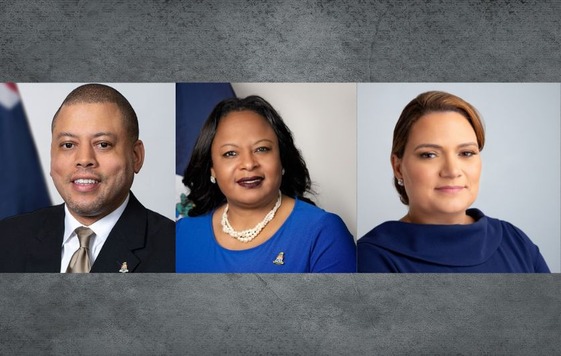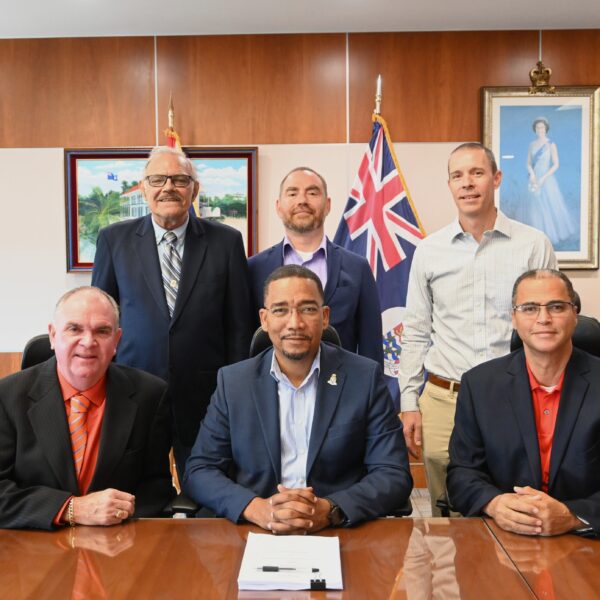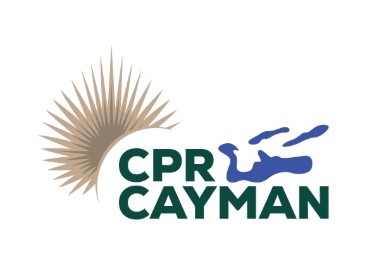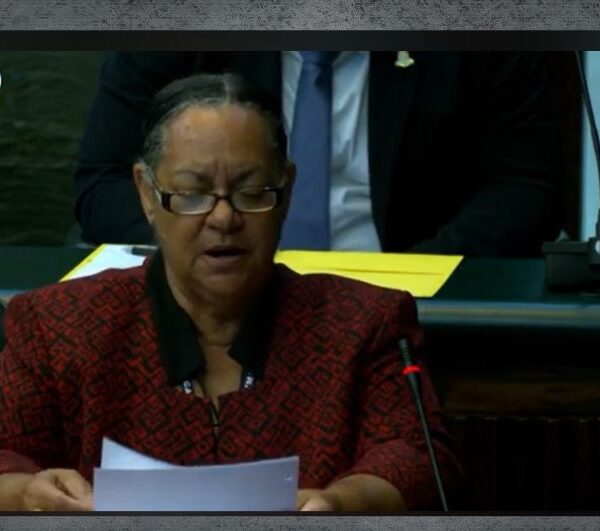
Ministers who resigned
|
Getting your Trinity Audio player ready...
|
By Alric Lindsay
It is commonly known that there are three arms of Government: the judiciary (i.e., courts, which administers the laws and justice), the legislature (which makes laws) and the executive (i.e. the Cabinet along with Her Excellency the Governor). These arms continue to operate as usual, notwithstanding the recent resignations of Hon. Andre M. Ebanks, Hon. Sabrina Turner, and Hon. Katherine Ebanks-Wilks from their ministerial positions in the Cabinet. This is because the judiciary operates independently of the arms affected by the resignations and the executive and legislative arms of Government only require specific numbers to be duly constituted and make decisions.
Why the Cabinet may continue
Examining the requirements to hold a meeting of the Cabinet, section 46(4) of the Cayman Islands Constitution says that only a majority of ministers are needed to have a meeting of the Cabinet.
Concerning this, five other ministers remain in the Cabinet, including the Premier. These other ministers are the Hon. Kenneth Bryan, MP, Minister for Tourism & Ports, the Hon. Johany S. “Jay” Ebanks, MP, Minister for Planning, Agriculture, Housing, Infrastructure as well as Transport & Development, the Hon. Isaac Rankine, MP, Minister for Youth, Sports and Heritage and the Hon. Dwayne Seymour, MP, Minister for Border Control & Labour and Culture. Unless this composition changes further, a majority of ministers remain in the Cabinet to validly hold meetings.
Since the Cabinet retains the required numbers, the meetings of the Cabinet may continue with the usual formalities, with Her Excellency The Governor or the Premier chairing meetings and the Cabinet approving matters in its capacity as the executive arm of the Government. (Note that the executive authority of the Cayman Islands is vested in His Majesty and subject to the Constitution, the executive authority of the Cayman Islands shall be exercised on behalf of His Majesty by the Government, consisting of the Governor as His Majesty’s representative and the Cabinet, either directly or through public officers.)
Regarding the validity of these meetings, the Cayman Constitution states that “the Cabinet shall not be disqualified for the transaction of business by reason of any vacancy in its membership (including any vacancy not filled when the Cabinet is first constituted or is reconstituted at any time) and the validity of the transaction of business in the Cabinet shall not be affected by reason only of the fact that some person who was not entitled to do so took part in the proceedings.”
Why the Legislature may continue
Similar to the Cabinet, the operation of the Legislature is a matter of numbers.
Regarding this, the Constitution states, “There shall be a Legislature of the Cayman Islands which shall consist of His Majesty and a Parliament.” (The Legislature makes laws for the peace, order and good government of the Cayman Islands.)
For a meeting of the Parliament to be held, a majority of the elected members of the Parliament must be present in addition to the person presiding.
The Constitution adds that “all questions proposed for decision in the Parliament shall be determined by a majority of votes of the members present and voting.”
This indicates that as long as a majority of the elected members attend Parliament to discharge their responsibilities on behalf of the people and a majority of votes are obtained for relevant matters, Parliament can continue to meet and the Legislature can continue to pass laws.
However, the ability of matters to get passed in Parliament will depend on whether the remaining members of the ruling Government can obtain support from the elected members of the Progressives and other elected members on the other side of the aisle. This is likely to be a straightforward task where there is agreement in advance of Parliamentary sessions between the remaining members of the ruling Government and the elected members of the Progressives and other elected members. That is, it is all a matter of negotiation where all elected members would hopefully act in the country’s best interests and disregard personal interests.
Dissolution of Parliament
Notwithstanding that the above shows that the Parliament may continue, members of the public speculate whether Parliament may dissolve.
To understand when Parliament may dissolve, one must examine the Cayman Islands Constitution.
Section 84(2) states, “The Governor, acting after consultation with the Premier, may at any time, by proclamation, dissolve the Parliament.”
This is in addition to the usual rule that “The Governor shall dissolve the Parliament at the expiration of four years from the date when the Parliament first meets after any general election…”
The Constitution adds, “A general election of members of the Parliament shall be held at such time within two months after every dissolution of the Parliament as the Governor shall appoint by proclamation published in a Government Notice.”
Unless the Governor consults with the Premier and decides to dissolve the Parliament, no such dissolution will occur, and no early elections will be called.
Given the lack of impact of the recent resignations on the operation of the arms of Government, including the continuation of the Parliament, people should now enquire about the real purpose of the recent resignations. For example, voters who look into this may conclude that the resignations may just be distractions from the fact that many things remain undone or unaccomplished. The list of unaccomplished things is long and includes the fact that the statement of financial position of the Government continues to understate liabilities by $2 billion (there appears to be no political will to make this correction), despite public statements to the contrary, the dump contract (Regen) remains unterminated, over $20 million has been spent on an unopened mental health facility (this has caused issues for the judiciary which has limited options regarding places to send mentally insane criminals for long term treatment), there are no district councils established in the manner contemplated by the Cayman Constitution, cost of living is still skyrocketing, thousands of people are still on welfare, a long term development plan is still not finalised, beach erosion remains a pressing issue, many young Caymanians cannot afford homes and there is no public transport solution. Notwithstanding the distractions, the failure to resolve these issues should stay at the forefront of people’s minds. If the critical problems are forgotten, people will arrive at the polls at the next general election without considering crucial points necessary to make informed decisions.







